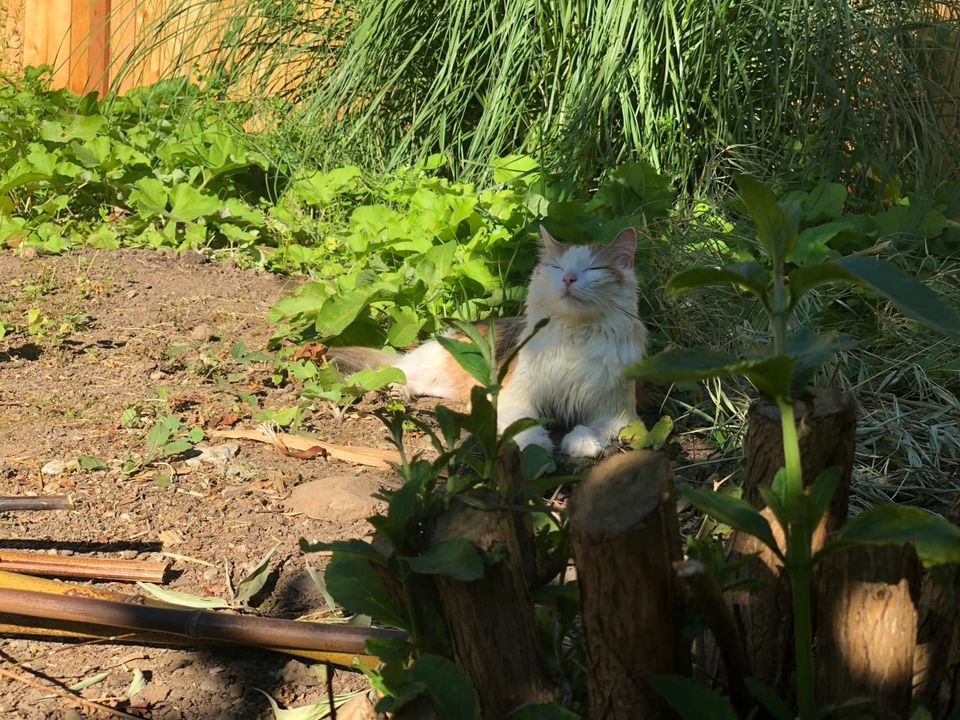How do you keep track of your week?

And what even is a week at this point.
Most of us are almost six months into living in the pandemic. Yet we all keep talking about losing track of time. You know the dance already:
I never know what day it is anymore.
I can’t believe it’s already [whatever month it is].
Somehow, we’ve done another week of this.
It has been way—WAY—harder to get a handle on the speed of time passing. Here in our house, we like to think that back in March, whoever was driving this thing hit the NOS button and somehow the world’s engine has hung on (by a few stubborn screw threads) ever since.
My point is that—while we still see clocks everywhere—whether time has been moving faster or slower during the pandemic, we lost many of the traditional landmarks that help us track each day. Routines that were built around walking in and out of our homes, like having the privilege to leave work at the end of the day, are a distant memory. The clothes that mark the mundane, the special events, and the weekends have blended together for those of us that are still working from home.
Exhaustion is perhaps one of the most reliable feelings that tell us months have passed. So many of us are tired. If, when the world isn’t sick, time accelerates and decelerates in more imperceptible increments, much of live during COVID-19 has jolted forward like a teenager who can’t feather the gas pedal yet—but they can sure as hell slam on the brakes.
A couple of weeks ago, science reporter Tara Haelle covered this sensation for Elemental—she called it surge capacity. From Haelle:
Surge capacity is a collection of adaptive systems—mental and physical—that humans draw on for short-term survival in acutely stressful situations, such as natural disasters. But natural disasters occur over a short period, even if recovery is long. Pandemics are different—the disaster itself stretches out indefinitely.
So even if you’re good—you’re employed, you and the family can eat, the internet works great, and your investment portfolio is tra-la-la’ing upward, ignorant of the global crisis—it’s likely that you’ve already exhausted your stores of surge capacity a few times in 2020. For anyone that’s felt as though they’ve been running on empty, this is the science behind that. It’s not quite depression, but it can feel like it.
Mixing this interminable uncertainty with political upheaval and misinformation and media alerts hurts like the Long Island Ice Tea you knew you shouldn’t have ordered just as the barkeep yelled out, “Last call!”*
And yet, consistency finds a way.
Maybe it’s a weekly family zoom call or a syndicated TV Show that is still airing in the exact same time block on broadcast television it always has (bless you, Trebek), but we find the predictable moments and claw onto them.
At newspapers and magazines, weekly columns and departments are still a way to measure another week gone by. As a kid, I set my weekend clock to the Saturday edition of Northampton’s Daily Hampshire Gazette (which is so old it covered Shay’s Rebellion). I remember grabbing the Hampshire Life insert out of the Gazette before my parents every week and reading aloud all of the movies that were playing nearby.
Many news shops have a regular (or occasional) feature called a Reporter’s Notebook. Usually, the notebook is a chance for someone on staff to pull back the curtain on a story; imagine Maggie Haberman telling you what it takes to file so many deeply-sourced stories at such a blistering pace.
The feature is an homage to the physical thing itself—the notepad with the spiral binding at the top—where a writer would furious scribble notes and quotes and scratch together outlines. For the news nerds out there who care, it’s the story of the person who wrote the story. What they thought about while they worked. Rarely, if ever, does this column break news. Rather, it functions as a reporter’s reflections and may have a more contemplative tone than straight news or an op-ed.
And that’s what I’d like this space to be: a place to share with you what’s sticking with me and reflect on it. Like I said last week, I’d like to stay connected. I think this is the direction we’ll go in for now.
At the very least, I hope this newsletter is a way to take the measure of some time and reflect on it. Think of it as a pinch of consistency in the 21-Seasoning-Salute that is right now.
*(Although it bears mentioning that some of this extended discomfort is what change feels like, and some of the change that we are experiencing here in the United States, I think, is good.)
To The Culture!
Sounds
Imploding The Mirage–The Killers
I’m recommending an album from The Killers; this is how I convince myself I don’t actually know what year it is. But actually, this record is real good. Like Bruce Springsteen and The E Street Band, but make it a circus where Brandon Flowers is both the master of ceremonies and the family of trapeze artists.
To Be Surrounded By Beautiful, Curious, Breathing, Laughing Flesh Is Enough–Deerhoof
I’ve been trying to get Michelle to headbang and play air instruments with me to Deerhoof’s math-y goodness for years, and I’m hoping this live record, from which all proceeds go to Black Lives Matter, will finally get her to do it.
(Hat tip to my good friend Max for both of these recommendations. Follow his journalistic and creative endeavors in his newsletter, a savage summation.)
I don’t know what frontwoman Alicia Bognanno is saying yet (I’m promise I’m trying to actually learn how to listen lyrics), but I love how it sounds. Can I call this Nashville garage punk? Yeah, it’s my newsletter—I sure can.
KEXP’s '“Variety Mix With Evie”
Seattle’s independent music radio station, KEXP, plays a lot of great stuff and Evie is our favorite DJ. (This week, Michelle wrote in and told her so, and Evie wrote back!) Her Sunday show is like having someone tarot read our musical tastes every week.
Words
On this American political moment
The Most Tremendous Reelection Campaign In American History Ever
I will read anything and everything Olivia Nuzzi writes at this point. Her stories are the best mix of deeply-sourced timely reporting and wry humor. There are too many remarkable quotes and moments in this snapshot of the Trump Campaigns management shakeup and it’s midsummer ground game.
Anne Helen Petersen announced her departure from Buzzfeed News last week, and with it came a rebrand of her (often linked here) newsletter. the collected ahp is now Culture Study, and one of Petersen’s first issues on her new, full-time banner is refreshing look at one night of the DNC.
NBA games are postponed tonight. What happens now? And what can Celtics fans do?
As the NBA’s wildcat strike broke on Wednesday this past week, I did a blog about listening to the players and supporting them.
Online learning? Or infotainment?
What Is MasterClass Actually Selling?
Carina Chocano’s exploration of the glossy celebrity-driven learning platform considers whether the product is actually teaching people stuff, or if it’s just making them think they’re learning. Pulling back the curtain on my job for a minute—when I look at online learning experiences, I always ask how the creators measure success. Are people walking away from a class able to do something or feeling something different?
I can’t fucking believe Chadwick Boseman died
It’s Hard To Make Dignity Interesting. Chadwick Boseman Found A Way.
Wesley Morris, another one of my cultural critique heroes, on the late star of Black Panther and his ability to make us feel.
Pictures
This show is trash
Netflix’s Selling Sunset, of which there are somehow already three seasons, is a dumpster fire of fake people selling houses that no one should be able to afford. And boy does it go down smooth. This show got me yelling at television the way I yell at bad movies.
Wouldn’t it be better if it was Person State?
As Michelle and I watched 1200 boys take on the Texas state capitol building and the UT campus in jeans and white shirts, she remarked (quite rightly, I think) that the toxic masculinity was overwhelming. Apple TV’s new documentary captures the 2018 edition of Texas Boys State, which is a weeklong in-person crash course in civics for teenagers.
As always, a reminder that Sunday On A Whim is a passion project. Please excuse the occasional half-baked sentence or silly typo.
